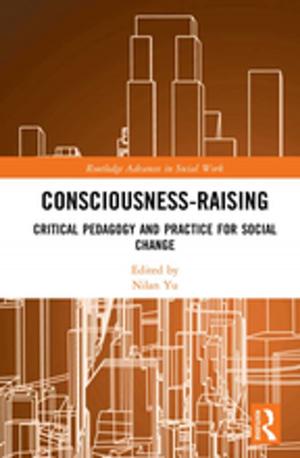Central Works of Philosophy v2
Seventeenth and Eighteenth Centuries
Nonfiction, Religion & Spirituality, Philosophy| Author: | John Shand | ISBN: | 9781317494386 |
| Publisher: | Taylor and Francis | Publication: | January 28, 2015 |
| Imprint: | Routledge | Language: | English |
| Author: | John Shand |
| ISBN: | 9781317494386 |
| Publisher: | Taylor and Francis |
| Publication: | January 28, 2015 |
| Imprint: | Routledge |
| Language: | English |
Central Works of Philosophy is a major multi-volume collection of essays on the core texts of the Western philosophical tradition. From Plato's Republic to Quine's Word and Object, the five volumes range over 2,500 years of philosophical writing covering the best, most representative, and most influential work of some of our greatest philosophers, each of them primary texts studied at undergraduate level. Each essay has been specially commissioned and provides an overview of the work, clear and authoritative exposition of its central ideas, and an assessment of the work's importance then and now. Each essay equips the reader with the resources and confidence to go on to read the works themselves. Together these books provide an unrivaled companion for studying and reading philosophy, one that introduces the reader to the masterpleces of the western philosophical canon and some of the greatest minds that have ever lived talking about the profoundest most exciting problems there are. The seventeenth and eighteenth centuries saw a brilliant outpouring of philosophical thought unprecedented in human history. Together philosophy and science pushed medieval and Renaissance scholasticism aside to lay the foundations of the modern world. Beginning with Descartes' Meditations, the contributors examine some of the period's most seminal philosophical texts: Spinoza's Ethics, which presents a complete picture of reality that has at its heart how we can be good, the Monadology, in which Leibniz describes what must underpin reality if it is to be fully explained, Hobbes' Leviathan, which reminds us of the dangers of the unchecked brutality of humanity; Rousseau's Social Contract, a vision of how human nature can be changed for the better in a new society, Locke's Essay Concerning Human Understanding which wishes us to grasp that we must make knowledge our own through experience not authority, Berkeley's attack on materialism in his Treatise and Hume's search for rational justification for our most basic beliefs about the world in his Treatise of Human Nature. Together these essays offer students a remarkable survey of the key texts and core ideas that make up the age of rationalism and empiricism.
Central Works of Philosophy is a major multi-volume collection of essays on the core texts of the Western philosophical tradition. From Plato's Republic to Quine's Word and Object, the five volumes range over 2,500 years of philosophical writing covering the best, most representative, and most influential work of some of our greatest philosophers, each of them primary texts studied at undergraduate level. Each essay has been specially commissioned and provides an overview of the work, clear and authoritative exposition of its central ideas, and an assessment of the work's importance then and now. Each essay equips the reader with the resources and confidence to go on to read the works themselves. Together these books provide an unrivaled companion for studying and reading philosophy, one that introduces the reader to the masterpleces of the western philosophical canon and some of the greatest minds that have ever lived talking about the profoundest most exciting problems there are. The seventeenth and eighteenth centuries saw a brilliant outpouring of philosophical thought unprecedented in human history. Together philosophy and science pushed medieval and Renaissance scholasticism aside to lay the foundations of the modern world. Beginning with Descartes' Meditations, the contributors examine some of the period's most seminal philosophical texts: Spinoza's Ethics, which presents a complete picture of reality that has at its heart how we can be good, the Monadology, in which Leibniz describes what must underpin reality if it is to be fully explained, Hobbes' Leviathan, which reminds us of the dangers of the unchecked brutality of humanity; Rousseau's Social Contract, a vision of how human nature can be changed for the better in a new society, Locke's Essay Concerning Human Understanding which wishes us to grasp that we must make knowledge our own through experience not authority, Berkeley's attack on materialism in his Treatise and Hume's search for rational justification for our most basic beliefs about the world in his Treatise of Human Nature. Together these essays offer students a remarkable survey of the key texts and core ideas that make up the age of rationalism and empiricism.















